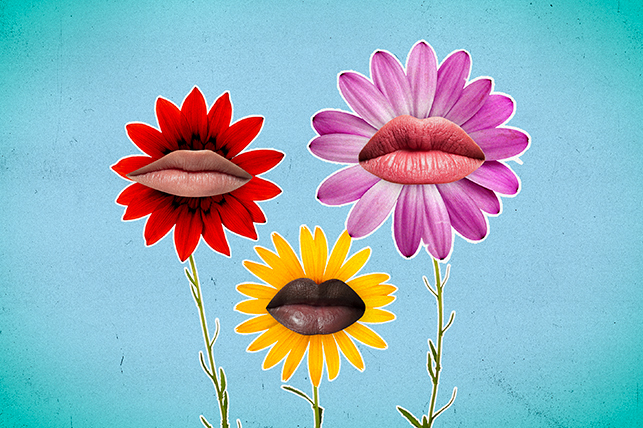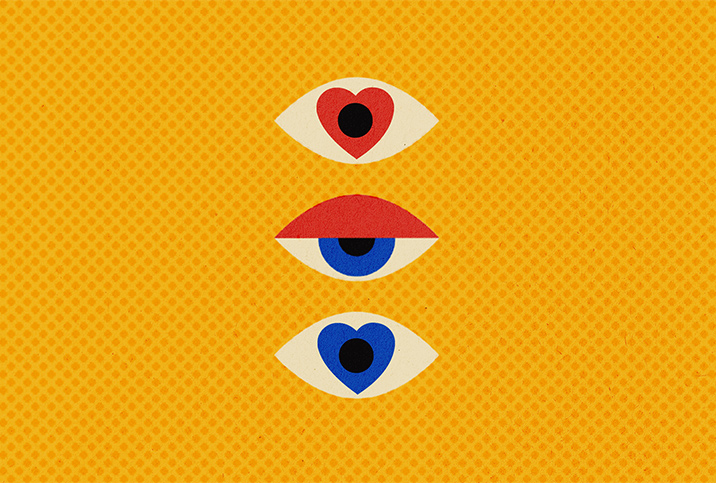Spring Into the Season of Love

Say goodbye to the cold, gray days of winter's snow, ice and rain. Spring has sprung and now it's time to trade in our sweaters for T-shirts. The sun is out, the days are warm, daffodils, tulips and cherry blossoms are in bloom, and soon our love life may be blooming, too.
Oh, sweet spring lovers
Warm weather seems to inspire a sense of rejuvenation, love and/or lust, at least in art. For centuries, poets have written about the effects of the season.
Thomas Nashe, an Elizabethan writer, dramatically penned these lines in 1592: "The fields breathe sweet, the daisies kiss our feet. Young lovers meet...In every street, these tunes our ears do greet...Spring, the sweet spring!"
And E.E. Cummings unabashedly published this poem in 1944:
"sweet spring is your
time is my time is our
time for springtime is lovetime
and viva sweet love"
Many people share a similar optimism at the onset of spring. Opening the windows to let in the fresh air is like a balm to our senses. And if the poets are right, these spring days bring the promise of new loves and reawakened desires.
Megan Negendank, L.M.F.T., C.S.T., founder and executive director of the Love Heal Grow Therapy Center in California, explained her thoughts on springtime love.
"As we transition out of the gloomy winter months, many people notice a positive shift in their mood," she explained. "With the sun comes warmth, a renewal in nature and more reasons to get out of the house. By taking part in more activities during spring and generally feeling better about ourselves and [our] lives, we may notice that romantic relationships naturally develop during this time."
The fact and fiction of springtime
The big takeaway here is that maybe we shouldn't be waiting for a romantic sizzler during the hot and lazy days of summer.
"Unlike summer, where high heat can make us irritable and unlikely to want to cuddle up to another warm body, spring with its comfortable temperatures and opportunities for outside activities may open our hearts to pursuing connections," Negendank added.
The spring season may inspire romance and the desire for a more robust sex life, but unlike nature, the season doesn't seem to affect our fertility. Although many ancient myths and cultures unite human fertility with the season, research has yet to uncover a correlation. In fact, according to a study by the Boston University School of Public Health published in 2020, autumn may be the ideal season for couples trying to conceive.
And the notion that "spring fever" is an affliction of unrequited love is also a misnomer.
Spring disease or fever was actually a debilitating health condition of the 18th century, as a result of poor winter diets lacking essential vitamins. Not very sexy at all were its symptoms of fatigue, loose teeth, swollen joints and slow-healing wounds. And the prescription to stave off the fever was much more pragmatic than romantic.
Are hormones happier in springtime?
As our mood improves with warmer weather and we spend more time outside, this could affect hormone levels, right?
"As far as I know, seasonality effects are not clear for oxytocin," said Sue Carter, Ph.D., a distinguished university scientist and professor emerita of biology at Indiana University who formerly served as executive director of the Kinsey Institute. She has studied the endocrinology of love and social bonds for more than 30 years.
Oxytocin, popularly known as the "love hormone" because it promotes social bonding, sexual behavior, birth and maternal behavior, also plays a direct role in sexual reproduction in both sexes, which in many species is seasonal, Carter said. Although there are many unknowns, Carter has found in her research that sexual behavior can alter the oxytocin system and vice versa.
However, Carter said vasopressin plays a major role in our circadian rhythms, which are controlled by a structure in our brains called the suprachiasmatic nucleus, where vasopressin is located. These circadian rhythms are greatly influenced by the light, which as we know varies greatly from winter to spring.
"Since vasopressin and oxytocin have many interactions, it is likely that there are many interactions with seasonal [changes] that have not been well studied," she said.
This research is complex and hard to perform, she added.
Maybe one day researchers will discover evidence that the increased light and warmer spring temperatures do enhance our sexual behavior and reproduction.
But science is a lot like love and life in that there are sometimes no absolute answers. And springtime remains a nice time to take a deep breath of fresh air and do it just as Ella Fitzgerald recommended when she sang the Cole Porter classic:
"Birds do it, bees do it…Let's do it, let's fall in love."


















